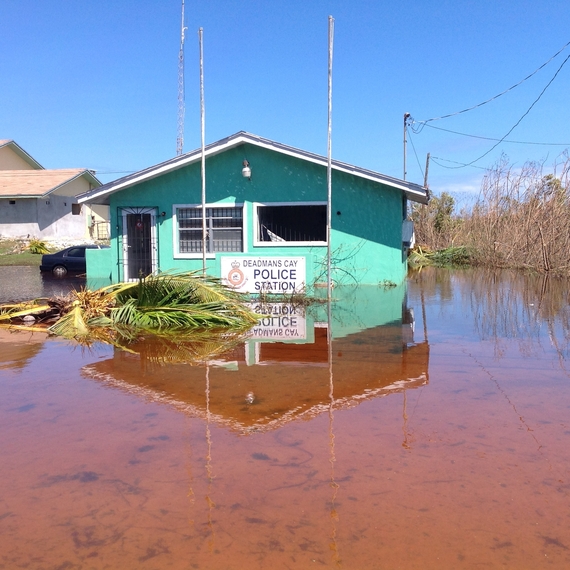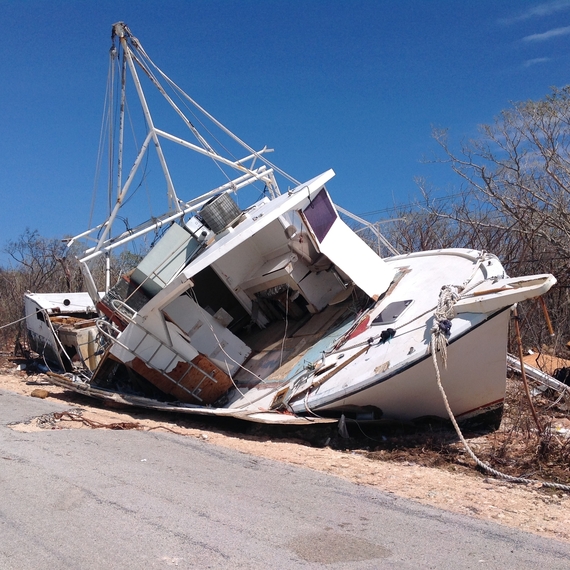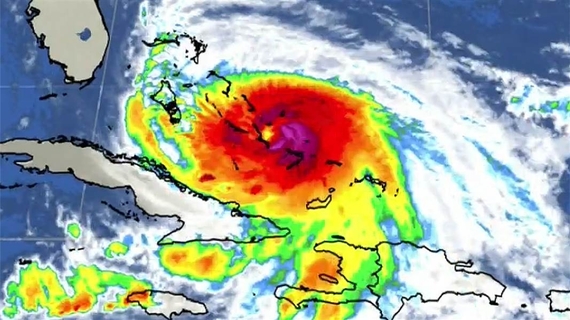By Joseph Ierna Jr. from Ocean Crest Alliance
September 30, 2015, we were all alerted to a tropical storm system off the Bahamas Island Nation, in the Atlantic Ocean.
October 1st, morning breezes were stiff in the settlement of Stella Maris, North Long Island Bahamas and local talk of a hurricane was abuzz.
By evening, Joaquin was a well defined hurricane system and this very dangerous slow moving weather system - was coming our way.
At first light, we could see a thick sea mist across the island landscape and we could hear the raging sea. Yet the winds were still only 40 miles per hour. At that point, we had no real affects of a major hurricane - we still had electricity, phones and Internet... island life was normal.
By the afternoon, Joaquin was now a category 4 Major Hurricane. Phoning a friend in Cabbage Point, South Long Island, the scene was significantly different than the North end of the island.
We could hear the wind screaming through the phone lines.
I asked, "How tings is?"
He replied "It's not good my friend, my front doors have blown out and I am in the back bedroom."
"If the house blows apart, I will run to my truck and ride it out inside the truck somewhere."
This horrifying "real life experience" was the reality many islanders in the South faced.
Two hours later, island-wide, phones and electricity were dead.
Nightfall arrived with no communication with anyone except with those who were battened down with you in your home. It was like back in the "old island days".
We were isolated from the outside world.
The Super Hurricane Joaquin defied all logic of hurricanes by wobbling aimlessly, feeding off the warm tropical waters between Crooked Island and Long Island for almost 39 hours.
In its wake, left homes, lives and entire communities were destroyed.
Joaquin affected every single vessel of Long Islands commercial fishing fleet; the Long Islands largest economy - and fishing was forever changed.
Mother Nature had stripped away lives overnight.
I believe that the effects of climate change are the single most significant factor that all humans have in common.
The Pope, the Muslim leaders, world business and political leaders have taken action towards addressing climate change.
Lloyds of London Insurance giant speaks of the tragedies on the horizon, and many in the business world are divesting away from fossil fuels.
Plastic pollution, burning of fossil fuels, overfishing, invasive species, illegal fishing, these are all affecting natures rhythm, which is greatly affecting each of our lives.
As we rebuild our island community, we must consider the facts: good conservation, research, education, science and technology may provide us hope to reverse the decline.
We must rebuild with long term sustainability as our guiding light, remembering our past - as the past holds many valuable lessons of love for our planet, people and a sustainable quality of life.
Satellite image of Major Hurricane "Joaquin" October 1, 2015, a Category 4 spinning off of Long Island Bahamas coast for 39 hours
As our dear friend and supporter, and one of the worlds leaders in ocean knowledge, the founder of Mission Blue, Dr. Sylvia Earle says very simply; "Now we know, so know we can care - we must all take care of our oceans and our planet as if our lives depend on it -- because they do!"
For information about OCA and how we are helping to rebuild our island community after Hurricane Joaquin, please visit http://www.oceancrestalliance.org.
We are a force for good, for all of nature and we are here to accelerate changes to make a real difference for our oceans, our planet and all of humanity.


